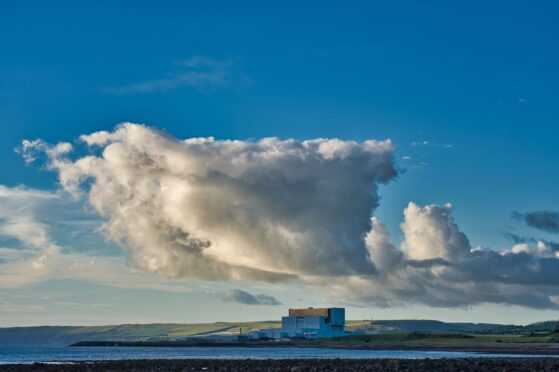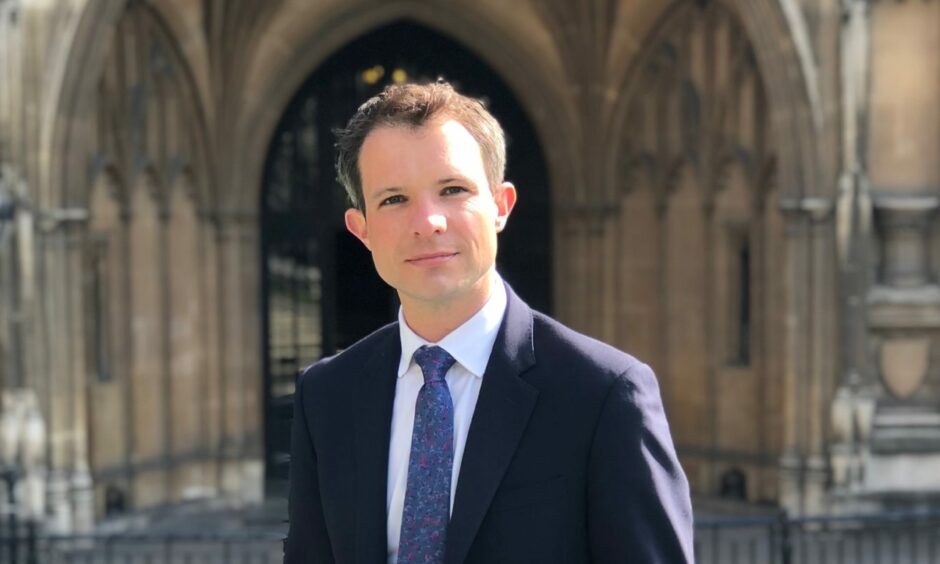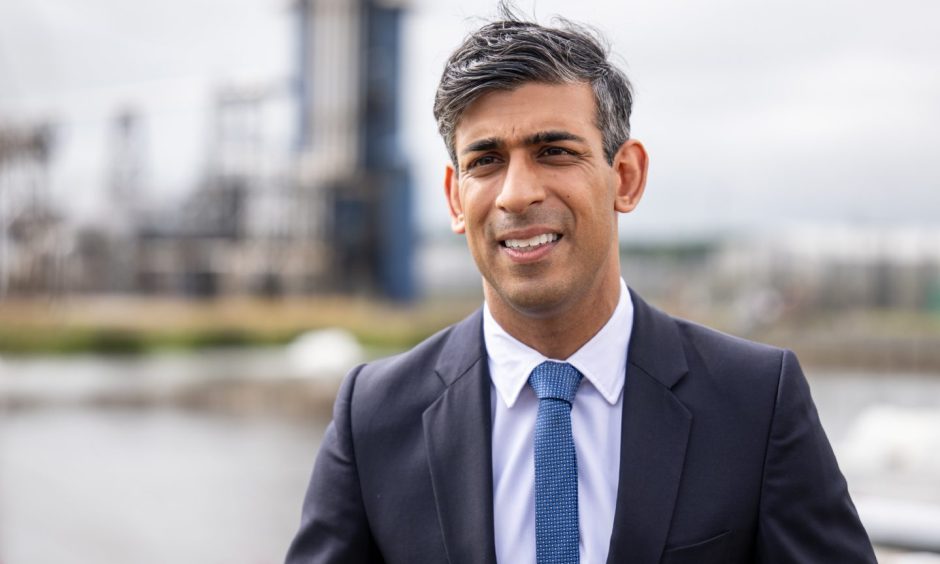
A Tory minster claims Scottish nuclear power could contribute up to 5% of the UK’s overall electricity demand and slash household energy bills – but is being blocked for “ideological reasons”.
The UK Government is undertaking its largest investment in nuclear for 70 years but the Scottish Government has a de-facto ban on new plants being built.
The SNP and Greens argue nuclear is expensive, unsafe and not wanted in Scotland.
UK nuclear minister Andrew Bowie said one of the greatest frustrations in his job is bringing “huge positive change” and investment to communities in England and Wales while constituencies like his own in West Aberdeenshire and Kincardine lose out.
Speaking exclusively to The Sunday Post at the Scottish Conservative conference in Aberdeen, Bowie also hinted the UK Government could throw further weight behind the energy sector by reducing or even scrapping the windfall tax.
A wasted opportunity
The MP pointed to the example of Finland, where he said energy bills have been slashed by 70% as a result of nuclear, and said it is “barmy” Scotland is not doing the same.
“I think it’s a huge wasted opportunity,” he said.
“I understand the opposition to nuclear in some quarters. Some people say we just don’t need it in Scotland.
“We’ve got wind, we have tidal, we’ve got oil and gas, so why do we need nuclear as well? But why not? Why not allow nuclear to be part of the mix?
“Why not allow communities in Scotland where nuclear has been traditionally based, where highly-skilled jobs are at a premium, to get a piece of the pie?”
More than 20 countries signed a joint declaration at the COP28 climate summit saying nuclear will play a “key role” in achieving net zero as they aim to triple global output.
How is nuclear handled in Scotland?
Bowie said the government’s aim is for nuclear to produce 25% of the UK’s electricity demand by 2050 and that up to 5% could be generated in Scotland.
He told a recent event at Holyrood that the Scottish Government’s block on nuclear developments is “an act of economic vandalism” and “bordering on criminally negligent”.
Scotland has just one remaining power plant – at Torness in East Lothian – but it is slated to close by 2028.
After that, nuclear will still be part of Scotland’s energy mix but it will only be generated south of the border.
At the conference on Saturday, Scottish Conservative leader Douglas Ross revealed he has warned the chancellor not to extend the windfall tax.
He said it would be an unacceptable blow to industry and workers.
Further talks are planned at a meeting on Monday ahead of Wednesday’s budget.
Bowie, who publicly opposed the tax before becoming a minister, suggested the Treasury is considering whether it can now be lowered or axed completely.
He said: “I take the view, the department takes the view, the government takes the view, that the energy profits levy is there but we’re not saying it’s going to be remaining as it is forever.”
The MP added that the chancellor is currently reviewing the levy and “looking at the level at which we might be able to reduce or get rid”.
The Scottish Government said it does not support building new nuclear power stations under current technologies because it is expensive, will take years – if not decades – to become operational and carries significant environmental concerns.
It added: “Through our draft Energy Strategy and Just Transition Plan we have set out a clear pathway to deliver on global commitments and capitalise on the enormous opportunities offered by becoming a net zero economy.
“Significant growth in renewables, hydrogen and carbon capture storage provide the best pathway to net zero by 2045, and will deliver a climate-friendly energy system that delivers affordable, resilient and clean energy supplies for Scotland.”

Enjoy the convenience of having The Sunday Post delivered as a digital ePaper straight to your smartphone, tablet or computer.
Subscribe for only £5.49 a month and enjoy all the benefits of the printed paper as a digital replica.
Subscribe
